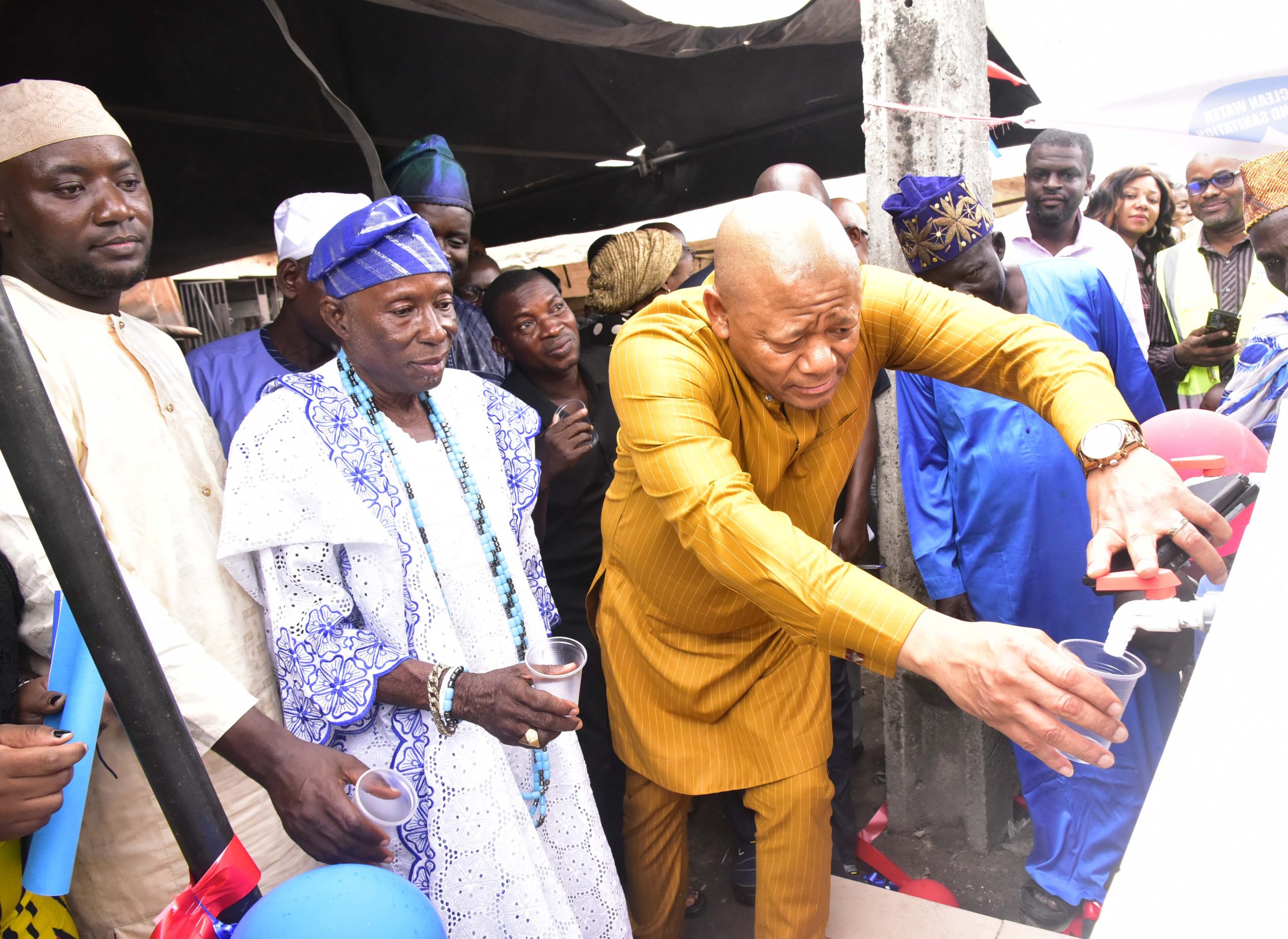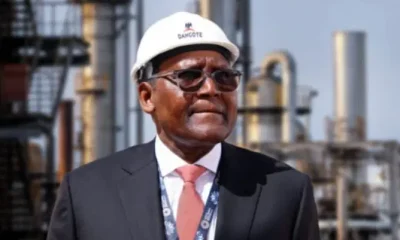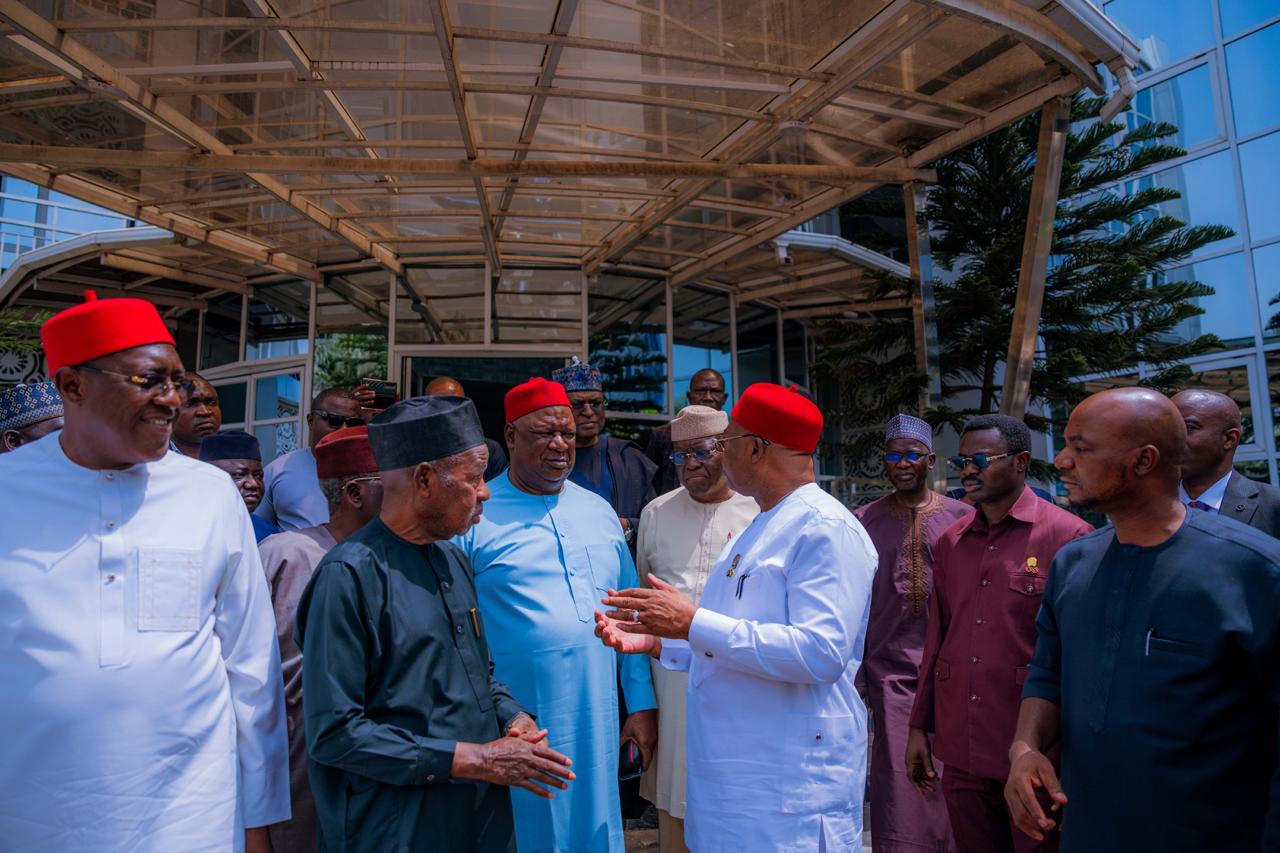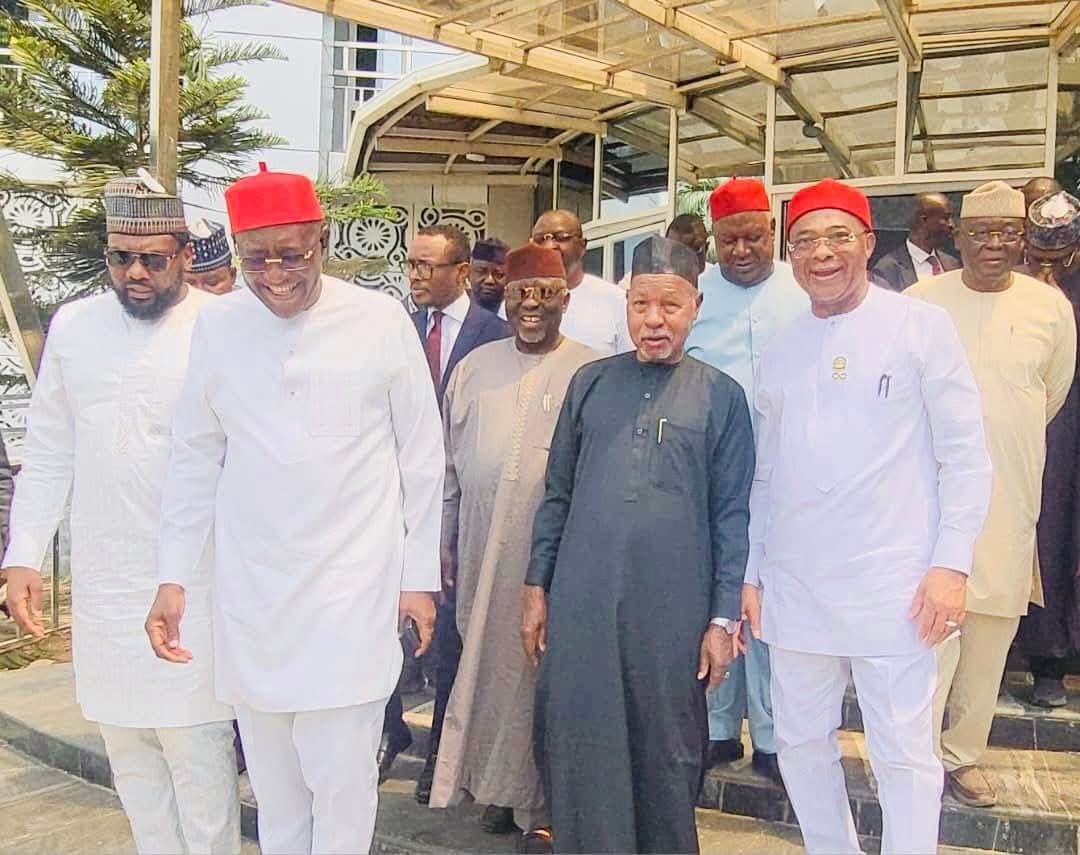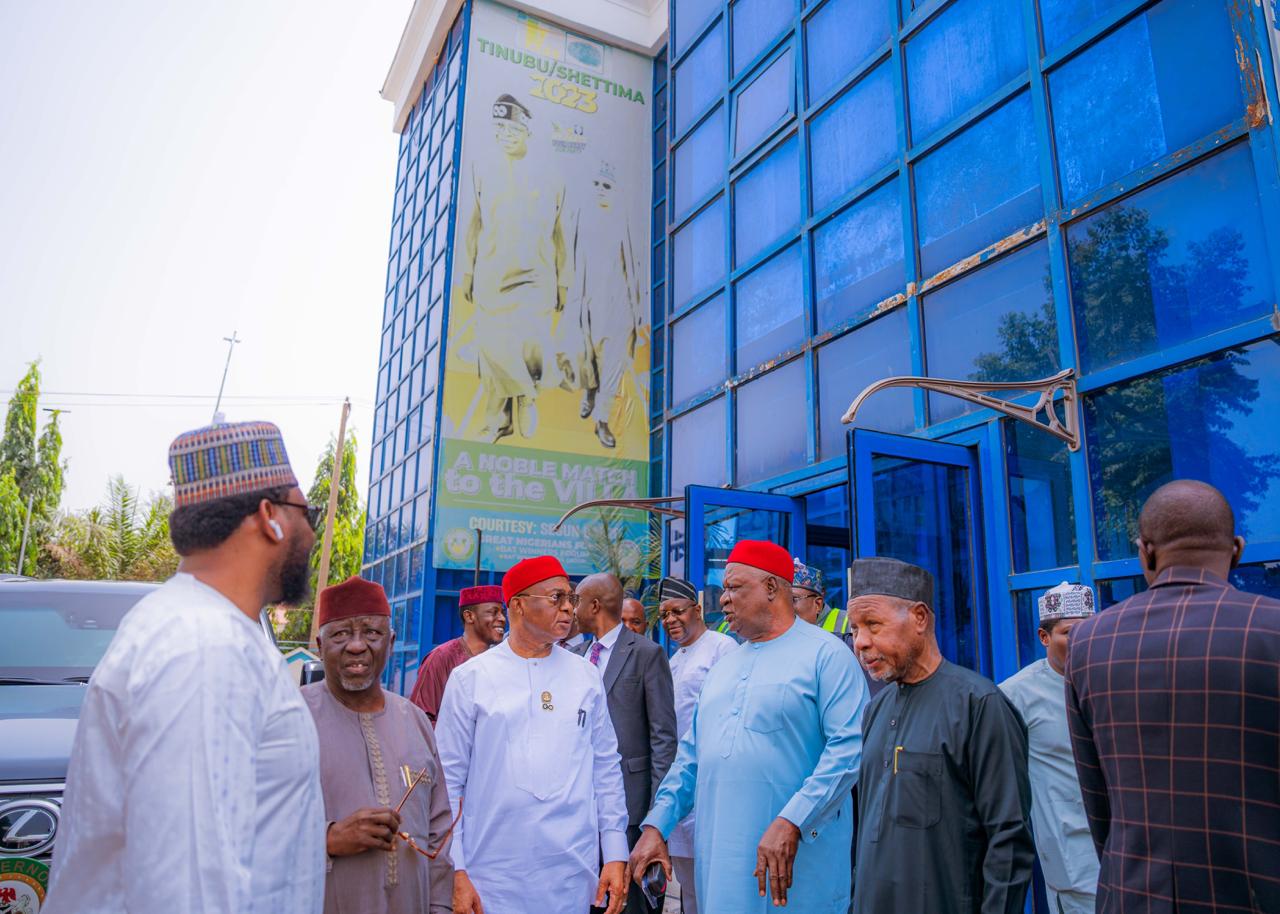Business
Delay in crude supply to Dangote Refinery Poses Risk to Nigeria’s economy – EIU Report
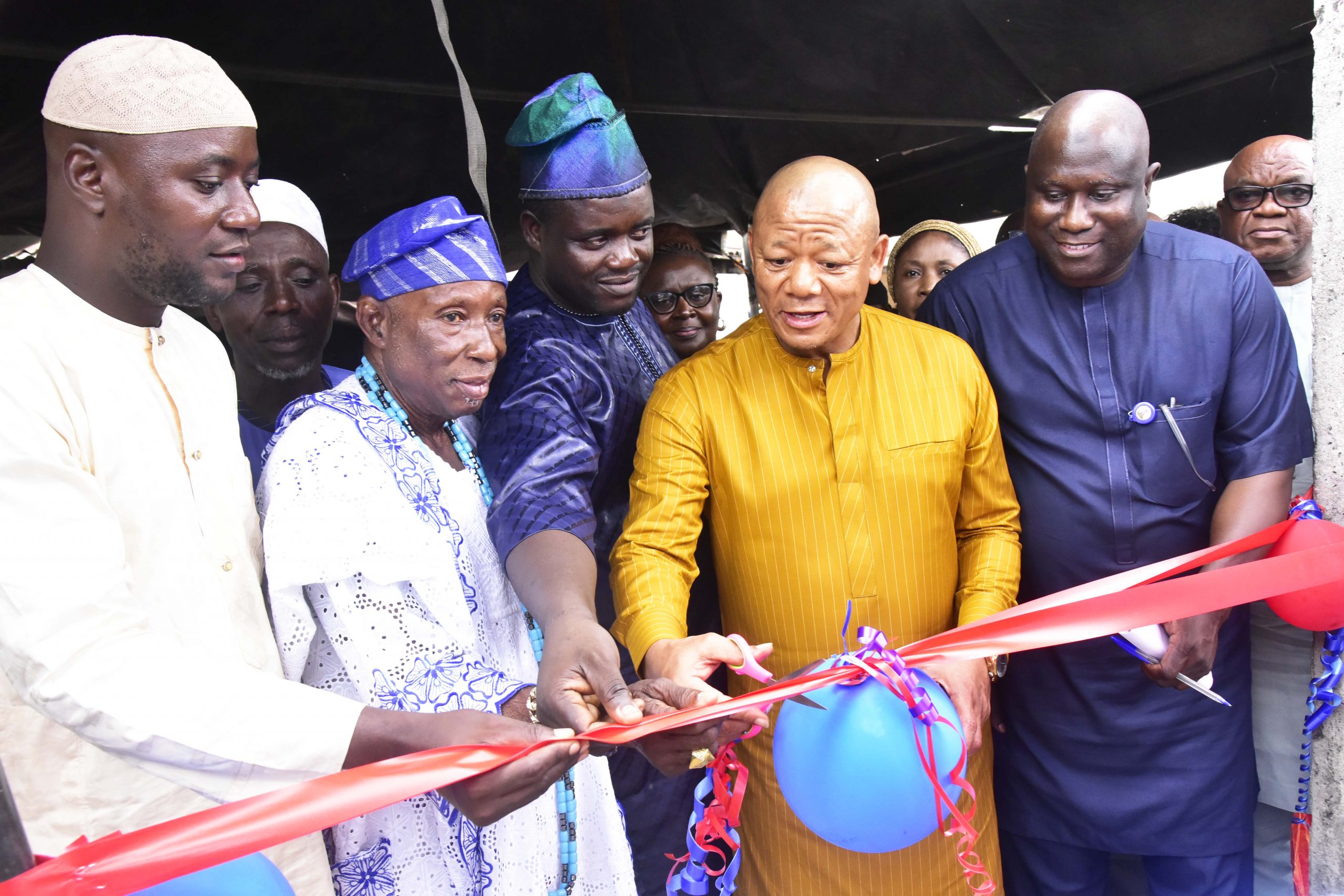
Delay in crude supply to Dangote Refinery Poses Risk to Nigeria’s economy – EIU Report
Sahara Weekly Reports That The Economist Intelligence Unit has issued a warning that further delays in crude oil feedstock to the Dangote Petroleum Refinery and Petrochemicals could jeopardise Nigeria’s economic recovery and put additional pressure on the naira.
The research and analysis division of the Economist Group said the Dangote refinery which began production in January has encountered setbacks in petrol production due to a shortage of crude oil feedstock.
It said the $20 billion facility has successfully exported various products, including fuel oil, naphtha, nitrogen fertilisers, gasoil, jet fuel, and diesel but has been able to ramp up petrol production due to challenges in sourcing adequate crude oil.
These delays are expected to have significant economic repercussions for Nigeria, potentially worsening the already strained relationship between public finances and the management of the naira, the country’s currency.
The report said though the government had previously scrapped the official petrol subsidy in June 2023, the practice of unofficially subsidizing petrol continues, with substantial implications for the national budget. It pointed out that this has led to increased currency losses, contributing to a widening budget deficit that has become increasingly difficult to manage and could force the Central Bank of Nigeria to revert to stronger management of the currency.
“As the federal government unofficially subsidises petrol (the official subsidy was scrapped in June 2023), currency losses feed into a widening budget deficit that is becoming more challenging to finance. This provides extra incentive for the central bank to revert to stronger management of the currency, as we already expect, but the degree of market intervention could become heavier. Meanwhile, ongoing fuel imports would reduce the current-account surplus from the 1.9% of GDP that we currently project for 2025, potentially leading to lower foreign reserves and the return to a more rigid and unstable foreign-exchange system,” it said.
The delay in securing a reliable pipeline of affordable crude oil feedstock was attributed to low crude production due to oil theft and underinvestment, as well as using crude oil to repay outstanding loans.
“The refinery has encountered a range of problems, both practical and political in nature. The most publicly discussed issue is how the refinery can secure a reliable pipeline of crude oil feedstock at affordable prices. NNPC, the state oil firm, has not been able to provide enough volume. The government has promised to deliver 450,000 b/d of oil to the refinery through NNPC in a pilot scheme, sold in naira, but the state oil company is not in a position to make this a reliable arrangement. Crude production in Nigeria is stubbornly low, as a result of oil theft and underinvestment. Output was 1.31m b/d in July, against an OPEC+ target of 1.38m b/d. NNPC receives a varying minority share of this and, moreover, a sizable quantity (about 90,000 b/d) is being committed as loan collateral,” it added.
The situation, it said, has been worsened by International Oil Companies (IOCs) operating in Nigeria, which demand a premium of $3-$4 per barrel over the prices they receive elsewhere. It noted that regulators are hesitant to enforce the Domestic Crude Supply Obligation (DCSO)—which requires IOCs to sell crude to local refineries—out of concern that such enforcement might lead to divestment.
The report emphasised that producing fuel locally would significantly benefit Nigeria’s fiscal position and currency, given that petroleum products account for 15% to 20% of the country’s goods import bill. The Dangote refinery, hailed as a transformative development, is expected to resolve the paradox of Nigeria being a major crude oil producer yet still dependent on fuel imports. With a capacity of 650,000 barrels per day (b/d), the refinery could potentially eliminate the need for fuel imports and shield local fuel prices from exchange-rate fluctuations.
“The Dangote fuel refinery is potentially transformational for Nigeria, which has always been an oil exporter and fuel importer. This fact is often regarded as a failure and an embarrassment by politicians, businesses and the media alike, but the new refinery has the ability to change this,” it said.
Business
Aig-Imoukhuede Foundation opens applications for 6th Cohort Programme

Aig-Imoukhuede Foundation opens applications for 6th Cohort Programme
The Aig-Imoukhuede Foundation is pleased to announce that applications are now open for the sixth cohort of its transformative AIG Public Leaders Programme (AIG PLP).
This flagship six-month executive education initiative, delivered by the University of Oxford’s Blavatnik School of Government, is designed to empower high-potential public sector leaders across Africa with the tools, networks, and strategic insight required to deliver meaningful reform across African public institutions.
Applications are now open to qualified public servants from all English-speaking African countries and will close on Sunday, April 12, 2026. The programme commences in October 2026.
Since its inception in 2021, the AIG PLP has built a formidable reputation for creating tangible impact.
Alumni from the programme have gone on to design and implement more than 230 reform projects within their ministries, departments, and agencies across Africa.
An impact survey revealed that 62% of alumni have earned promotions or assumed expanded leadership roles post-training, demonstrating the programme’s direct effect on career advancement and institutional influence.
“Across Africa, the complexity of public sector challenges demands more than good intentions. It requires reformers who understand systems, can navigate institutional realities, and are equipped to implement sustainable change.
The AIG PLP is designed to meet this need,” said Ofovwe Aig-Imoukhuede, Executive Vice-Chair of the Aig-Imoukhuede Foundation.
As part of the programme, a PLP alumna, Titilola Vivour-Adeniyi, Executive Secretary of Lagos State DSVA, launched a secure self-reporting tool that allows survivors of domestic and sexual abuse safely document incidents and preserve evidence.
Survivors are already accessing support, and the tool ensures that crucial proof is protected until justice can be sought. This is one of over 230 impactful reform projects being implemented across sectors as diverse as healthcare, finance, agriculture, and education.
We are seeing proof every day that investing in the capacity and leadership potential of people, delivers the kind of transformation that policy alone cannot achieve.”
The AIG PLP is a blended learning experience that combines online sessions with an intensive residential module.
It is offered at no cost to selected participants, with the Foundation covering all costs of the programme including accommodation and feeding during the residential weeks.
Participants gain direct access to world-class faculty from the University of Oxford, and learn to tackle core public sector challenges such as: Negotiating in the public interest. Harnessing digital technology for governance.
Strengthening public organisations.
Upholding integrity in public life.
The curriculum culminates in a capstone reform project, where participants apply their new skills to a real-world challenge within their institution.
This practical component ensures that learning translates directly into actionable solutions.
Interested candidates are encouraged to apply early. For more details on the application process and to apply, please visit the Aig-Imoukhuede Foundation website.
Business
Renewed Hope Ambassadors Inspect RHA Secretariat
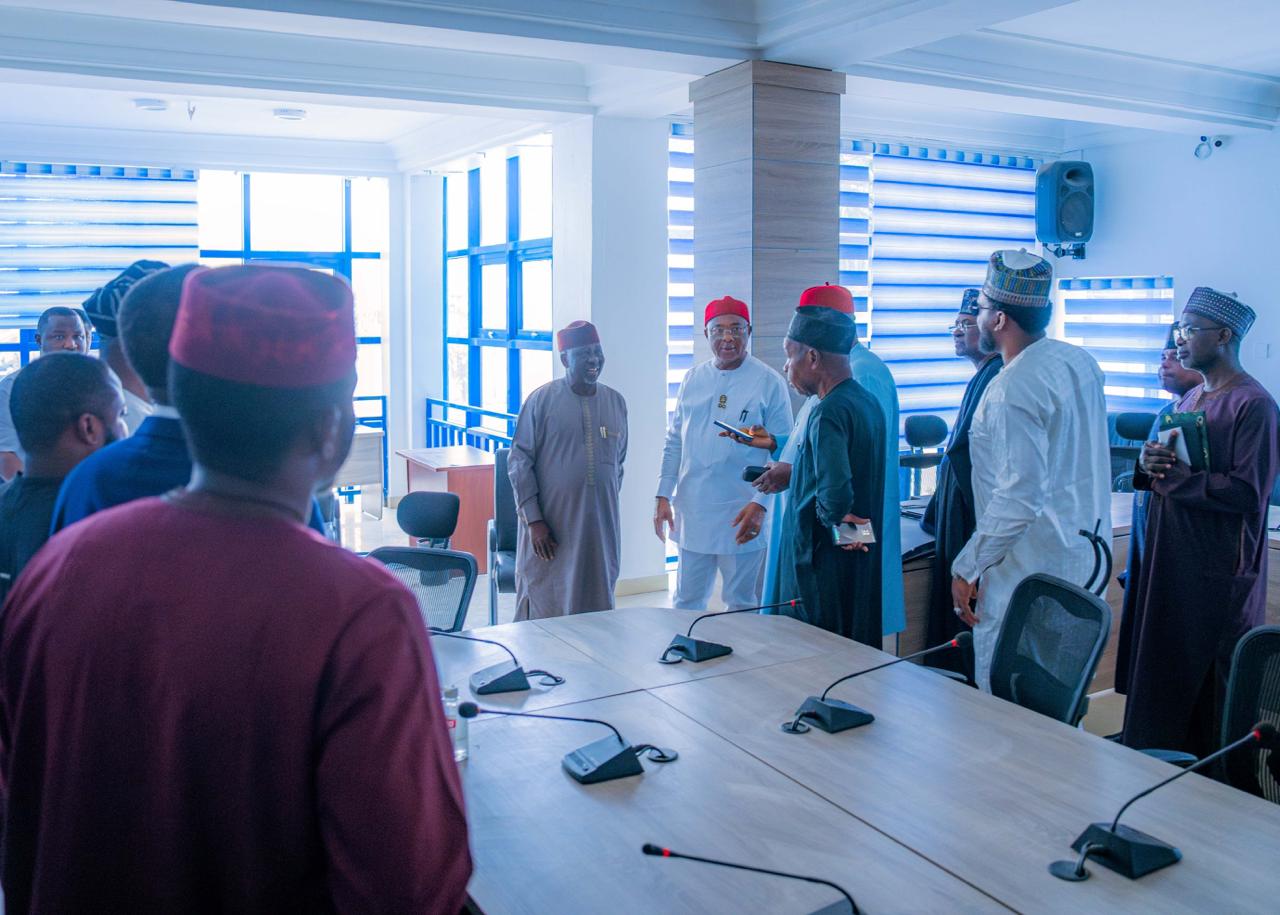
Renewed Hope Ambassadors Inspect RHA Secretariat
Renewed Hope Ambassadors, led by its Director-General and the Governor of Imo State, Hope Uzodinma, alongside Zonal Coordinators (NW, NC, SE), the Media & Publicity Directorate, and other key stakeholders, inspected the RHA Secretariat two days after President Bola Tinubu unveiled the Renewed Hope Ambassadors grassroots engagement drive in Abuja.
Business
Harmony Gardens’ Ibeju-Lekki Portfolio Crosses $1bn

Harmony Gardens’ Ibeju-Lekki Portfolio Crosses $1bn
Harmony Garden & Estate Development Limited has expanded its development activities across Ibeju-Lekki, pushing the projected long-term value of its estate portfolio beyond $1 billion.
Led by Chief Executive Officer Hon. Dr. Audullahi Saheed Mosadoluwa, popularly know Saheed Ibile, the company is developing seven estates within the Lekki–Ibeju corridor. Details available on Harmony Garden & Estate Development show a portfolio spanning land assets and ongoing residential construction across key growth locations.
A major component is Lekki Aviation Town, where urban living meets neighborhood charm, located near the proposed Lekki International Airport and valued internally at over $250 million. The development forms part of the company’s broader phased expansion strategy within the axis.
Other estates in the corridor tagged as the “Citadel of Joy” (Ogba-idunnu) include Granville Estate, Majestic Bay Estate, The Parliament Phase I & II, and Harmony Casa Phase I & II.
With multiple projects active, the rollout of the Ibile Traditional Mortgage System, and structured expansion underway, Harmony Garden & Estate Development Ltd continues to deepen its presence within the fast-growing Ibeju-Lekki real estate market.
-

 celebrity radar - gossips7 months ago
celebrity radar - gossips7 months agoWhy Babangida’s Hilltop Home Became Nigeria’s Political “Mecca”
-

 society5 months ago
society5 months agoReligion: Africa’s Oldest Weapon of Enslavement and the Forgotten Truth
-

 society7 months ago
society7 months agoPower is a Loan, Not a Possession: The Sacred Duty of Planting People
-

 news7 months ago
news7 months agoTHE APPOINTMENT OF WASIU AYINDE BY THE FEDERAL GOVERNMENT AS AN AMBASSADOR SOUNDS EMBARRASSING


